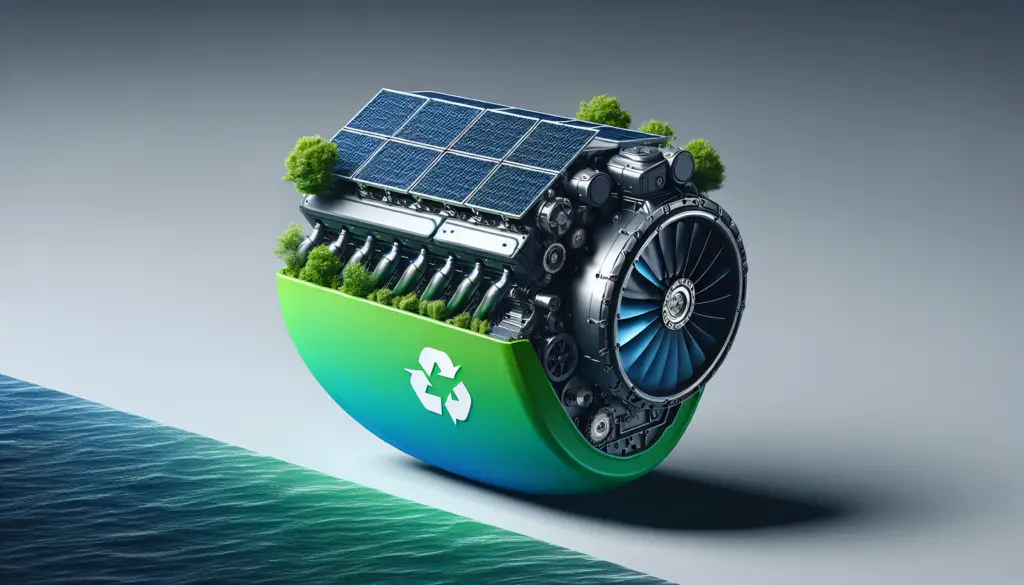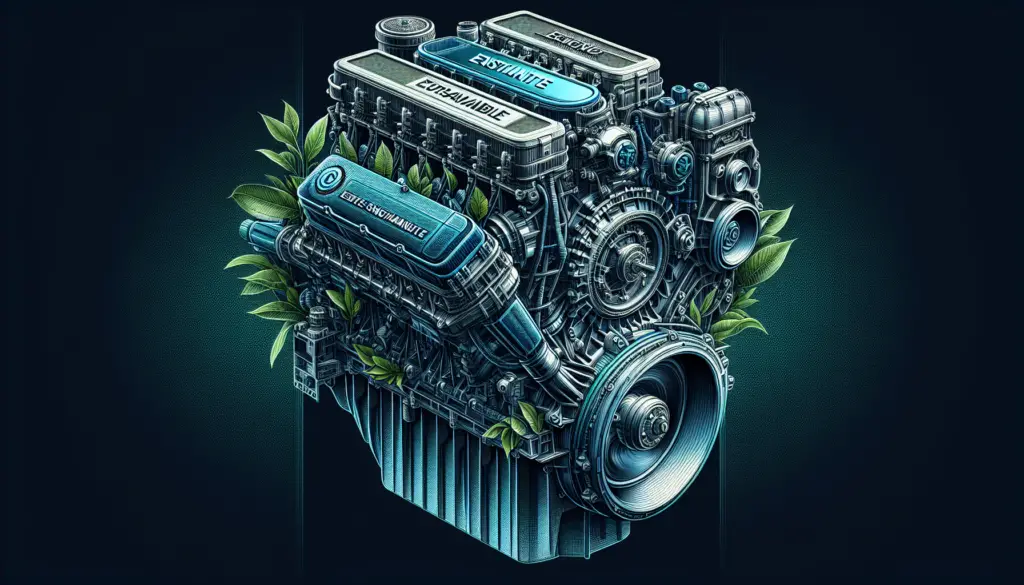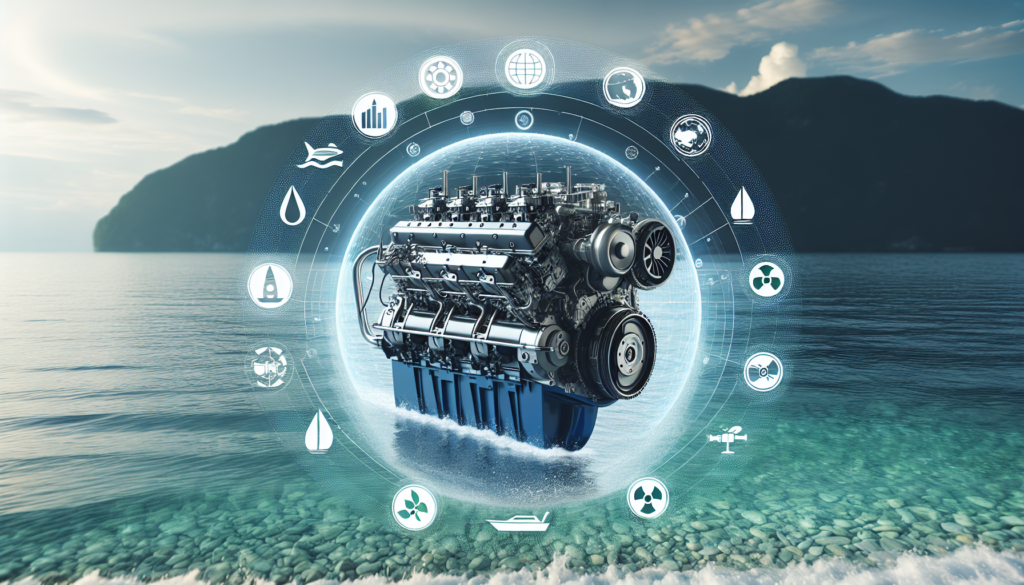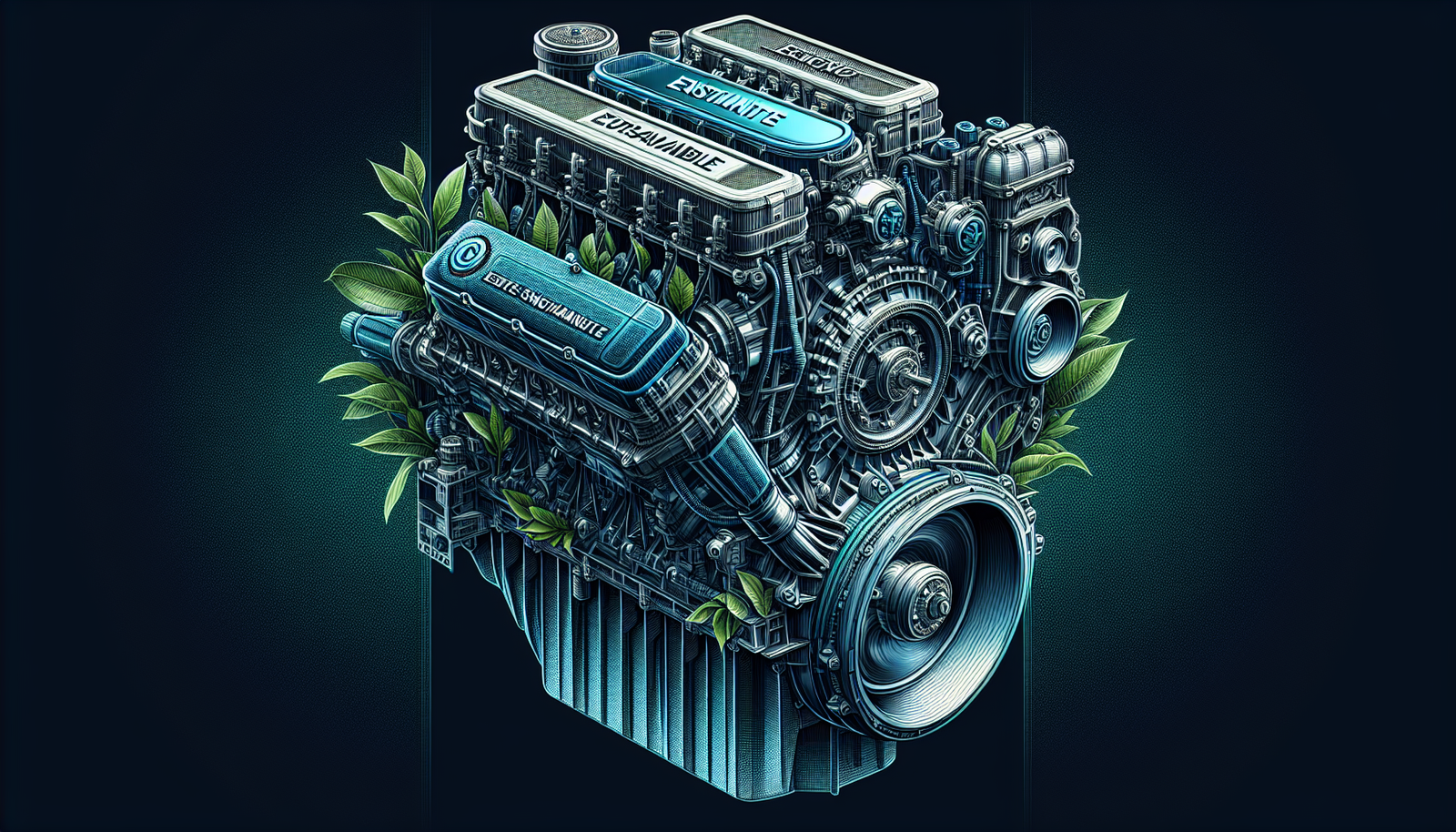You’re a seafarer concerned about the environment. You’re constantly seeking ways to make your maritime activities more sustainable. This involves choosing an eco-friendly boat engine – a decision that can feel overwhelming. But don’t fret, because this article will guide you through the most popular eco-conscious boat engine models. It serves as your compass to navigate through the exciting world of eco-conscious boating, helping you make an informed decision that complements your love for the sea and respect for Mother Earth.

The Drive Towards Eco-Conscious Boating
Boating is a fun and leisure activity that is enjoyed by millions globally. However, typical boat engines are often powered by fossil fuels which emit greenhouse gases, contributing towards global climate change. This has led to an increasing shift towards more eco-conscious boating practices. Stepping towards ecological responsibility, many boat owners and enthusiasts are sourcing for alternatives that have a minimal environmental footprint.
The Role of Eco-consciousness in Modern Boating
With the increased global awareness about climate change and the urgent need to reduce carbon emissions, the boating world is not left out. The role of eco-consciousness in modern boating has become a critical part of conversations around boating. It’s about taking responsibility and ensuring that the pleasure we derive from our connection with the sea isn’t at the expense of the environment. Responsible boating practices such as reducing fuel consumption, recycling waste, using renewable energy sources, and exploring cleaner engine technologies have become important considerations for the modern boater.
How Various Manufacturers Are Responding to Environmental Concerns
To meet these growing environmental concerns, boat manufacturers are taking significant steps towards sustainability. They are incorporating cleaner technologies into their designs and manufacturing practices, creating more solar-powered, electric, biofuel, and hybrid models than ever before. While these models may have higher upfront costs, they often lead to lower maintenance costs and a much lower environmental impact over time.
Electric Boat Engine Models
Electrically powered boats offer a fresh breeze into the boating industry, providing an eco-friendly alternative to conventional fuel-powered models.
Introduction to Electric Boat Engines
electric boat engines use stored electrical energy in batteries to power an electronic motor. These engines are quiet, produce no exhaust gases, and can be recharged using renewable energy, such as solar or wind power.
The Benefits and Drawbacks of Electric Boat Engines
One of the major advantages of electric boat engines is silent operation. Unlike their gas counterparts, electric engines are incredibly quiet, perfect for wildlife viewing or fishing. They also don’t emit harmful exhaust gases, making them clean and eco-friendly. However, the significant drawback to electric boat engines is their limited range and power. To date, they can’t match the power or endurance of traditional petrol engines, and charging infrastructure on the water is still scarce.
Highlight on the Torqeedo Deep Blue Electric Outboard Motor
Torqeedo, a leader in the field of electric boating, is paving the way with its Deep Blue Electric Outboard Motor. This motor boasts incredible power, high efficiency, and smart energy management systems. They also offer models with integrated batteries that can be recharged using solar or wind power.
Focus on the Elco EP-50 Electric Outboard
Another significant player in the electric boat engine market is Elco with its EP-50 Electric Outboard. With equivalent power to a 9.9 horsepower gas outboard, this model is perfect for small boats and tenders. However, its real selling point is its efficiency: the EP-50 uses just 1.1 kilowatts per hour at cruising speed.

Hybrid Boat Engine Models
Hybrid boat engines combine a traditional combustion engine with an electric motor to reduce fuel consumption and emissions.
Overview of hybrid boat engines
Hybrids work by utilizing two propulsion systems: a traditional internal combustion engine and an electric motor. The boat can operate solely on electric power at low speeds, reducing noise and emissions, while the petrol engine provides power for high-speed cruising.
Pros and Cons of Hybrid Boat Engines
Hybrids are a great middle ground for those who want to reduce their environmental impact but still need the range and power of a traditional engine. They are more fuel-efficient, quieter, and cleaner than traditional engines, but they still suffer from some of the drawbacks of electric engines, including higher initial costs and longer recharge times.
Spotlight on the Fischer Panda Whisperprop Hybrid Drive
One of the leading hybrid drive systems on the market today is the Fischer Panda Whisperprop. This drive system scores highly in terms of efficiency, offering a powerful and silent mode of propulsion.
Insight on the Steyr Motors Hybrid Engine
Another excellent hybrid option is the Steyr Motors Hybrid engine. An engine with an automatic start-stop function, it’s designed to ensure optimal power delivery and maximum fuel efficiency.
Biofuel Boat Engine Models
Biofuels can be a renewable and environmentally friendly alternative to traditional diesel or petrol.
Understanding Biofuel and Its Role in Boating
Biofuels are made from biological materials like plants or animal waste, which can be converted into a liquid fuel. This fuel is biodegradable and can significantly reduce carbon emissions compared to traditional fuels.
Advantages and Disadvantages of Biofuel Boat Engines
Biofuels burn cleaner than petrol or diesel, releasing fewer greenhouse gases and particulates. They can also be used in existing engines with little modification. However, biofuels have lower energy density than fossil fuels, leading to less power and a shorter range. Furthermore, there are ethical concerns surrounding the production of biofuels, as they often compete with food crops for agricultural resources.
Examining the Yanmar 6LY3-ETP Diesel Engine
The Yanmar 6LY3-ETP, a performer in the boating world, has been designed to work efficiently with biofuels. This engine’s compatibility with environmentally friendly alternatives makes it a front-runner in the journey towards eco-friendly boating.
Looking at the Volvo Penta D13 MH
Another leader in biofuel compatibility, Volvo’s Penta D13 MH not only meets but exceeds emission standards while delivering outputs from 400-900 horsepower.

Solar-Powered Boat Engine Models
Solar-powered boats use panels to convert sunlight into electricity which is stored in batteries to power an electric motor.
Introduction to Solar Power in Boating
The concept of solar power in boating is simple: solar panels installed on the vessel’s surface generate electricity through photovoltaic cells. This electricity is stored in a battery and used to run the boat’s engine, as well as any onboard electronics.
Pros and Cons of Solar Powered Boat Engines
The main advantage of solar-powered boats is that they have zero fuel costs and are completely silent. However, their speed and range are limited by the amount of sunlight they receive.
Highlight on the Silent 55 Solar Electric Catamaran
The Silent 55 has made a significant splash in the world of solar-powered boating. With 30 high-efficiency solar panels and lithium batteries, it offers sustainable sea travel without sacrificing comfort and luxury.
Focus on the Soel Yachts SoelCat 12
The SoelCat 12 is another luxurious but ecologically responsible option. It’s a 39-foot catamaran that can cruise at 8 knots for six hours solely on solar power.
Hydrogen Fuel Cell Boat Engine Models
Hydrogen fuel cell technology is another highly promising field in the push for eco-conscious boating.
Understanding Hydrogen Fuel Cell Technology
Hydrogen fuel cells work by combining hydrogen and oxygen to produce electricity, with the only by-product being water. This technology is particularly attractive as hydrogen is the most abundant element in the universe, and it emits zero greenhouse gases when used as a fuel.
Benefits and Limitations of Hydrogen Fuel Cell Boat Engines
Hydrogen fuel cells are clean, efficient, and produce water as their only waste product. However, the challenge lies in the storage and distribution of hydrogen, as it is a volatile and highly flammable gas.
Spotlight on the Energy Observer Vessel
Making waves in this field is the Energy Observer vessel. It’s the world’s first self-sustaining, hydrogen-powered boat. It uses solar, wind, and its proprietary hydrogen producing technology to power itself.
Insight on the Hinckley Company’s Dasher Yacht
Hinckley’s Dasher yacht, the world’s first fully electric luxury yacht, was designed from the ground up for electric propulsion, using batteries charged by hydrogen fuel cells.

Efficient Traditional Boat Engine Models
While the industry is rapidly moving towards more eco-friendly options, there are still plenty of improvements to be made in traditional boat engines.
Discussing Fuel Efficiency in Traditional Boat Engines
Fuel efficiency in traditional boat engines is an important factor in reducing the overall environmental footprint. Manufacturers are constantly improving engine designs to get more power from less fuel, leading to lower emissions and cost savings for users.
Highlighting the Mercury FourStroke Outboard Engines
A prime example of fuel efficiency in traditional engines is the Mercury FourStroke Outboard Engines. Renowned for delivering power, speed, and fuel efficiency, these engines set criteria for performance, while also being environmentally friendly.
Focus on the Yamaha XTO Offshore Outboard
The Yamaha XTO Offshore Outboard combines direct injection and variable valve timing to optimize power and fuel efficiency. It also uses a unique exhaust system to reduce emissions.
Affordability of Eco-Conscious Boat Engines
While the upfront costs of eco-conscious boat models can be higher than traditional ones, long-term savings can often compensate for this.
Comparing the Cost of Different Eco-Conscious Boat Engines
While electric or solar-powered models can cost significantly more than conventional engines, they benefit from lower operating costs over their lifetime, making them a worthwhile investment. These engines require less maintenance and no fuel, leading to significant savings.
Discussing Potential Long Term Savings
Investing in an eco-conscious boat engine can lead to substantial long-term savings. Not only can you save on fuel costs, but many of these engines also have significantly lower maintenance costs. Combined with potential subsidies or incentives for clean energy, the overall cost of owning an eco-friendly engine can often be much less than a traditional model.
The Future of Eco-Conscious Boating
The boating industry is moving quickly to incorporate cleaner, more efficient technologies into their designs.
Emerging Technologies in Eco-Conscious Boating
From advanced hydrogen fuel cells to improved solar panel efficiency, the future of eco-conscious boating is bright. Electric boat makers are also continually improving their battery technology to increase range and power output. Further, new materials and designs are making boats more lightweight and thus more fuel-efficient.
Industry Predictions and Trends
The future will likely see more widespread adoption of renewable energy technologies in boating, with a rising number of marinas offering charging stations for electric boats. Solar power is predicted to become more efficient and widely used, and hydrogen power holds a great deal of promise if issues of storage and distribution can be resolved.
Making the Transition to Eco-Conscious Boating
Transitioning to eco-conscious boating needn’t be a daunting task. With careful planning, a keen eye for the right equipment, and a willingness to try new technologies – anyone can start this journey.
Assessing the Need and Readiness for Transition
The first step in this process is to assess your needs as a boater and your readiness for change. Ask yourself – How often do you use your boat? Where do you use your boat – are there charging stations available? These questions will help you decide the best eco-friendly options for your needs.
Steps to Transitioning, Including Education and Purchasing Decisions
While buying an electric or hybrid boat might be the best solution for some, it could be installing solar panels or using biofuels for others. But whatever model you choose, it’s crucial to understand your options and make informed decisions. Educate yourself about different fuel types, read up on the latest engine technologies, and reach out to professionals in the field who can guide you through your transition.
In conclusion, eco-conscious boating is the future of the industry. While there may be challenges, the benefits – to owners, to mariners, and most importantly, to the environment – make this an exciting journey to undertake. So, consider making the transition today, because every wave we make counts!


[…] you know your step for recreation is contributing positively to the environment. That’s where eco-conscious boat engines come into the […]